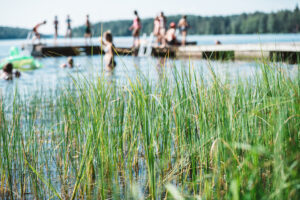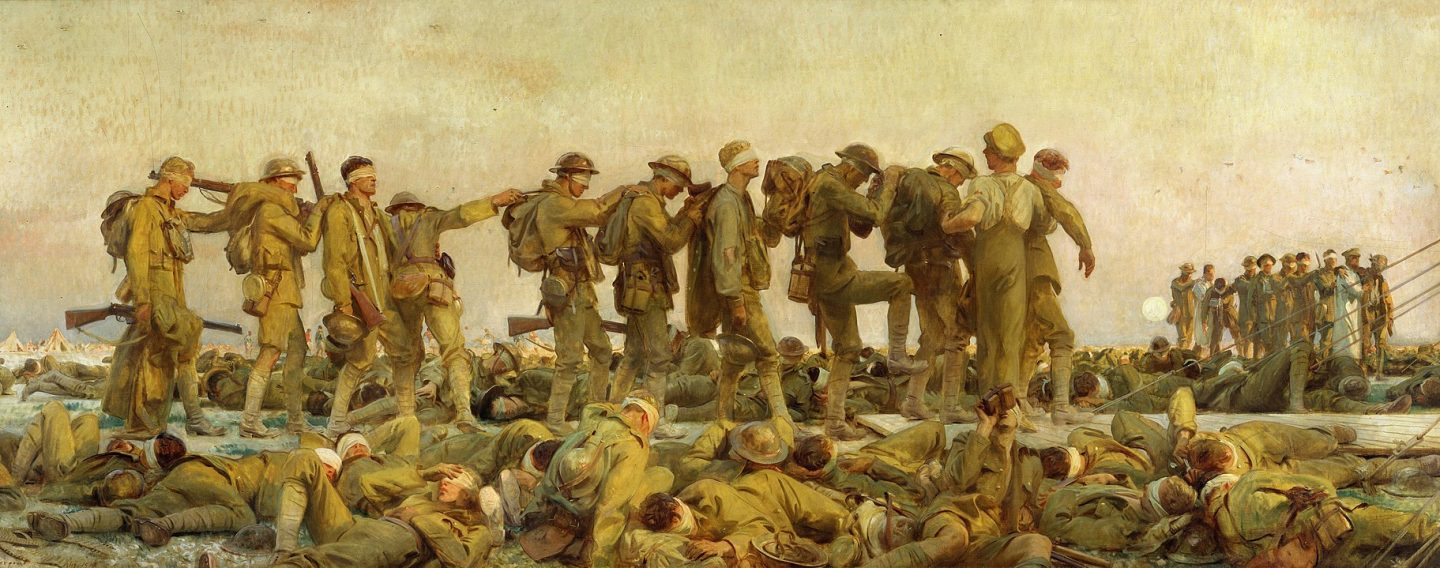Memory, War, and Social Coherence:
Bringing Together and Tearing Apart
June 5-6, 2025
Mikkeli, Finland
The conference will address the role played by collective, individual, and institututional memories of wars in escalating, but sometimes also moderating political and social conflicts.
The call for papers is closed.
If you would like to attend the conference, please register here.
A printable version is available here.
Thursday, June 5
8:45-9:00 Welcome, Opening Remarks and General Information
9:00-10:30 Session I: Event-based Memory
Location: Auditorium (Päämajasali)
Chair: Natalija Majsova (University of Ljubljana, Slovenia)
Peter Vermeersch (KU Leuven, Belgium) and Ana Devic (Aix-Marseille University, France)
National commemorations versus the dynamics of local citizen-led commemorative practices: the case of VukovarSimona Mitroiu and Camelia Gradinaru (AI Cuza University of Iasi, Romania)
Weaponisation of Memory. A World War I Cemetery and the Mobilization of the Distant-Past by a Romanian Populist PartyRachel Merrill Moss (Colgate University, USA)
Daffodil Diplomacy: Affective Performances of Politicized Historical Memory at the 80th Anniversary of the Warsaw Ghetto Uprising
10:45-12:15 Keynote I | Location: Auditorium (Päämajasali)
Shared Past: The Roadmap to War? The Russian-Ukrainian Case
Georgiy Kasianov, Head of the Laboratory of International Memory Studies at the Institute of International Relations, Maria Curie-Skłodowska University
12:15-13:30 Lunch
13:30-15:30 Session II: Parallel panels
Panel II.1: Memory and National Narratives
Location: Auditorium (Päämajasali)
Chair: Francesco Biasi (University of Salerno, Italy)
Samuel Foster (University of East Anglia, UK)
The Absent Stage Manager: How the Security State Invented the First World War in Popular MemoryDeniz Kilincoglu (Leibniz-Zentrum Moderner Orient, Germany)
Military History as Collective Memory: The Formative Role of War in Turkish National Self-NarrativesAytac Yurukcu (University of Eastern Finland)
An Imperial War Bringing the Finnish Community Together during the National Movements: Finnish Soldiers Letters to the Fennoman Newspapers in 1877–1878Ilya Solomeshch (Independent Scholar)
Re-inventing Finland as an Enemy. Image of Finland vis-à-vis Memory Politics and State Propaganda in Russia, 2014–2025
Panel II.2: Persistence of Memory
Location: Cabinet
Chair: Pawel Dobrosielski (University of Warsaw, Poland)
Ryan Reed (University of Helsinki, Finland)
Russia’s Penitentiary Pasts: Identity in Official Memories of the Gulag and WarAlexander Osipov (University of Eastern Finland)
In the Shadow of the Great Patriotic War: The Elusive Memory of the Civil WarMalkhaz Toria (Ilia State University, Georgia)
The Instrumentalization of History as a Tool of Exclusion: Identity Politics and Post-Colonial Memory Regimes in Breakaway Abkhazia Region of Georgia
16:00-17:30 Session III: Parallel panels
Panel III.1: Memory Lapses
Location: Auditorium (Päämajasali)
Chair: Michael Cude (Schreiner University, USA)
Eliza Ablovatski (Kenyon College, USA)
No Periphery: Wartime and Postwar Violence against Civilians – Expanding Memorial Narratives?Olga Simonova (University of Turku, Finland)
The Memorization of Female Participants in the Civil Wars on the Fringes of the Russian Empire: The Red Heroines from the 1920s to the PresentTaylor McConnell (JGU Mainz, Germany)
Living with memory abuse: social divisions and war memory in post-conflict environments
Panel III.2: Memory and Media
Location: Cabinet
Chair: Vjeran Pavlaković (University of Rijeka, Croatia)
Yuliya V. Ladygina (Pennsylvania State University, USA)
The Past and Its Presence: Historical Memory and Political Rhetoric in Akhtem Seitablaev’s “87 Children” (2017)Frederic Worthington (University of Exeter, UK)
“Should Germany be rearmed?” Wartime Memories and the Debate on Post-WWII West German Rearmament on the BBC German ServicePawel Dobrosielski (University of Warsaw, Poland)
“I survived the Nazis, I will survive the Rashists”. The Second World War and the Holocaust in the Current Ukrainian Discourse on the Ongoing Russian-Ukrainian War
17:30 Reception
Friday, June 6
9:00-10:30 Session IV: Coming to Terms with Existing Memories
Location: Auditorium (Päämajasali)
Chair: Ilya Solomeshch (Independent Scholar)
Alexander Etkind and Johanna Gautier Morin (Central European University, Austria)
Catastrophic Learning: Does Cultural Memory Help Us Survive the Anthropocene?Anastasiya Pshenychnykh (Loughborough University, UK)
Russia-Ukraine memory wars over monuments: social media and public perspectivesOlga Davydova-Minguet and Olga Filippova (University of Eastern Finland)
Russian-speaking and Ukrainian immigrants relating to Finnish War Memory: immigrating into history?
10:45-12:15 Keynote II | Location: Auditorium (Päämajasali)
Affective practices, difficult histories and peace education: Teachers’ Affective Dilemmas in Ethnically Divided Cyprus
Michalinos Zembylas, Professor of Educational Theory and Curriculum Studies at the Open University of Cyprus
12:15-13:30 Lunch
13:30-15:00 Session V: Parallel Panels
Panel V.1: Mnemonic Aesthetics and Strategies of War and Transition in Popular Culture
Location: Auditorium (Päämajasali)
Chair: Simona Mitroiu (AI Cuza University of Iasi, Romania)
Owen Kohl (Grinnell College, USA)
The Stakes of Storytelling and Solidarity’s MultimodalityNatalija Majsova (University of Ljubljana, Slovenia)
Wartime Agency and Post-Yugoslav Film: Implication as a Posthuman CategoryVjeran Pavlaković (University of Rijeka, Croatia)
The Muralization of War: A Comparative Approach to Graffiti, Murals, and Memory Politics
Panel V.2: Russia’s Full-Scale Invasion of Ukraine and the Reshaping of Memory
Location: Cabinet
Chair: Malkhaz Toria (Ilia State University, Georgia)
Sergii Pakhomenko (Mariupol State University, Ukraine / University of Latvia)
Decolonisation? “Defensive” Nationalism? Counterpropaganda?: Ukrainian response to Russian narrativesTetiana Nahirniak (University of Eastern Finland)
The Impact of War on Ukrainians’ Meaning and Memories of the Soviet PastVlada Sabadash (V.N. Karazin Kharkiv National University)
Distorted Mirror: Constructing the Image of Russia in Contemporary Ukrainian Media Discourse
15:15-16:45 Session VI: Parallel Panels
Panel VI.1: Individuals’ Agencies in Memory
Location: Auditorium (Päämajasali)
Chair: Aytac Yurukcu (University of Eastern Finland)
Michael Cude (Schreiner University, USA)
Woodrow Wilson and the Contested Legacy of International ReformKristina Vugdelija (University of Zagreb, Croatia)
“War is Finally Over, Let Us Turn to the Future” – The Making of the Exemplary Warrior Hero in Post-War CroatiaFrancesco Biasi (University of Salerno, Italia)
War Memories and Identity Narratives: The Murattian Generals between 1814 and 1821
Panel VI.2: Directing Memory Through Literature and Art
Location: Cabinet
Chair: Sergii Pakhomenko (Mariupol State University, Ukraine / University of Latvia)
Duccio Colombo (University of Palermo)
The Panorama of the Battle of Stalingrad and the late-Soviet “Novel-Panorama”: Modes of Representation and the Reappropriation of War MemorySofia Schulgin (University of Eastern Finland)
The War Poetics of Vera BulichAnne Rothfeld (Independent)
“Eve Tucker versus Restitution Policy in U.S. occupied Austria”
16:45-17:00 Closing Remarks | Location: Auditorium (Päämajasali)
Optional evening program
The easiest way to reach Mikkeli from Helsinki airport is by train, or, rather, two trains.
Once you arrive at the airport, pick up your luggage and follow the signs to the train platform. You will need to take the commuter train P to Tikkurila station. These trains run every eight minutes, and you can buy the ticket by card or cash at one of the ticket machines on the platform. Chose the ticket for zones BC – it costs €3,20. The ride is short – only three stops, and takes about eight minutes. You can verify the schedule on the Helsinki Regional Transport Authority website (a useful resource if you plan to explore the city before or after the conference).
From Tikkurila, you will change to a train that runs to Mikkeli. You can check the schedules and buy tickets on the Finnish railways website. The price of the tickets increases as the travel date approaches, so it’s best to buy them in advance. You will need a ticket from Tikkurila (Vantaa) station to Mikkeli station. Right now the cheapest one-way tickets are only €10.80. The journey from Tikkurila to Mikkeli takes less than 2,5 hours.
Participants coming from European countries might consider Flixbus as an eco-friendly alternative for traveling to Helsinki.
If you have any questions about planning your trip to Mikkeli, please feel free to email us at warmemories2025 at gmail dot com and we will be happy to help!
Mikkeli offers several different accommodation options, most of which are listed below. For some of these hotels we been able to negotiate a discount for conference participants. Feel free to also check sites such as AirBnB and Booking.com for alternative housing options.
Original Sokos Hotel Vaakuna (****)
0,9 km from the conference venue/0,3 km from the railway station
When booking, use the code BMEMORY2025 to secure the following prices:
- 118,93 € / night / Standard-class room
- 139,41 € / night / Standard-class room for 2
- 144,84 € / night / Superior-class room
- 165,57 € / night / Superior-class room for 2
Scandic Mikkeli (***)
0,3 km from the conference venue/0,5 km from the railway station
When booking, use the code CGRO to secure the following prices:
- from 97 € / night / Standard single
- from 113 € / night / Standard for 2
- from 108 € / night / Superior
- from 122 € / night / Superior for 2
A number of family rooms is also available.
1,3 km from the conference venue/1,3 km from the railway station.
This option is particularly good if you are looking for something a bit more homelike. Also great if you travel with others and don’t mind sharing a room; they have both a small aparthotel as well as a small hostel.
When booking, use the code “ UEF “ to get a 10% discount from the list prices.
Hotel Uusikuu (**)
1,3 km from the conference venue/1,8 km from the railway station
Prices vary from 74€ (for one) to 114€ for up to four persons a night.
If you are traveling by car, plenty of interesting housing options are available within 10km of the center of Mikkeli. For example, the somewhat posh mansion Tertin kartano, located 6 km from the center.

Mikkeli (pop. 52,000), named after Archangel Michael, is located on the banks of Lake Saimaa, Finland’s largest lake. Because of its beautiful nature and an abundance of smaller lakes, the area around the town is a popular summer vacation destination.
During WWII, Mikkeli was the location of Finnish army headquarters, and the Muisti Centre of War and Peace as well as the Infantry Museum tell about this part of its history. The saloon car used by Commander-in-Chief Mannerheim and his personnel in 1939-1946 is open to the public once a year, on Marshal’s birthday, which conveniently falls on the day before the opening of our conference.
Those interested in an easy nature hike might want to check out the Kalevakangas multi-purpose trail located within walking distance of the Muisti Center, or the Kaihu trail located in the southern part of the town. From the Naisvuori observation tower, which also houses a café, you can enjoy a nice view of the town.
Mikkeli has several public beaches, and those visiting Finland often come across the opportunity to go the sauna, so bringing along a swimming suit might be a good idea.
If you are traveling by car, check out the many unique natural sights located in the area such as the Astuvansalmi prehistoric rock paintings, the Pien-Toijola Open-Air Museum, or a legendary boulder.
For more ideas of things to do during your visit, take a look at the official Mikkeli Tourist Information website.

Photos by Pihla Liukkonen
Memory, War, and Social Coherence:
Bringing Together and Tearing Apart
June 5-6, 2025
Mikkeli, Finland
In today’s Europe, collective memory plays a crucial role in political decision-making (Mälksoo 2015). Conflicting memories increasingly influence international politics, but also national and regional policies. Populist politicians, government agents and individual activists use differing narratives of the past to escalate dormant conflicts and pit ethnic, religious, or linguistic groups against each other. Yet, memory can also be an instrument of reconciliation, helping conflict-ridden societies come together (Zembylas 2012). How societies deal with their past through museums, history books, art and other manifestations of memory culture is highly relevant for understanding how conflicts breed, develop and unravel. The past – real or imagined – is an important element of any contemporary society.
Memory wars can precede, and often escalate during, physical warfare. Russia’s invasion of Ukraine in 2022 was preceded by a memory war of differing narratives of recent and ancient history (Pakhomenko et al. 2018; Kasianov 2022). The role of memory is no less important in the post-war situation: unresolved memory conflicts complicate transition to peace (Klem 2018). Yet, memory conflicts do not require actual wars or war-like conditions. Societal conflicts caused by inequality, cultural differences or power imbalance can fuel conflicts in which the role of collective memory becomes crucial.
We call for papers examining and exploring various aspects of memory and war. We understand war broadly from world wars to civil wars and regional clashes. The proposed papers can range from individual case studies to methodological considerations. Possible themes include, but are not limited to:
- controversial war memorials and places of remembrance
- the role of history teaching or textbooks in memory conflicts
- populist parties using narratives of war or their aftermath
- postcolonialism and conflicting memories of war
- intersections of memory cultures and politics related to war
- art and literature concerning war and post-war remembrance
- examples of post-war reconciliation
The official conference language is English. The conference is planned as an in-person event.
Keynote speakers: Georgiy Kasianov (Maria Curie-Skłodowska University, Lublin), author of Memory Crash: Politics of History in and around Ukraine, 1980s–2010s (2022) and Michalinos Zembylas (Open University of Cyprus), author of Emotion and Traumatic Conflict: Reclaiming Healing in Education (2015).
Applications should include an abstract (300 words) indicating the theme and approach of the proposal (20-minute proposal format), along with a short biography (100 words). Applications should be sent via this google form.
We also welcome other types of contributions like complete panels, roundtables, small workshops and other types of input. In such cases, please contact the organizers directly.
The deadline for submissions is January 7th, 2025. Decisions will be announced in the second half of January.
The conference venue is Muisti – The Center of War and Peace in Mikkeli, focusing on preserving and displaying experiences of war and promoting peace. During the Second World War, Finnish army headquarters were located in Mikkeli leaving many sites and museums still to be visited. The town of Mikkeli is located in beautiful lakeside Finland and easily accessible by trains from the Helsinki airport.
There will be a modest conference fee to cover lunches and coffee breaks. The fee will be waived for presenters in case new funding opportunities open up.
Conference convenors are Simo Mikkonen and Tamara Polyakova, University of Eastern Finland. Contact email.
References:
Kasianov, G. (2022). Memory Crash. Politics of History in and around Ukraine, 1980s–2010s. CEU Press.
Klem, B. (2018). The problem of peace and the meaning of ‘post-war.’ Conflict, Security & Development, 18(3).
Mälksoo, M. (2015). Memory Must Be Defended. Security Dialogue, 46(3).
Pakhomenko, S., Tryma K., Francis J. (2018). The Russian–Ukrainian War in Donbas. Sayapin et al. The Use of Force against Ukraine and International Law. Springer.
Zembylas, M. (2012). Suffering, memory and forgiveness: Derrida, Levinas and the pedagogical challenges of reconciliation in Cyprus. In P. Ahluwalia, S. Atkinson, P. Bishop, P. Christie, R. Hattam & J. Matthews (Eds.), Reconciliation and pedagogy (pp. 45-64). New York: Routledge
Cover image: John Singer Sargent, Gassed, 1919, oil on canvas, Imperial War Museum, London.
